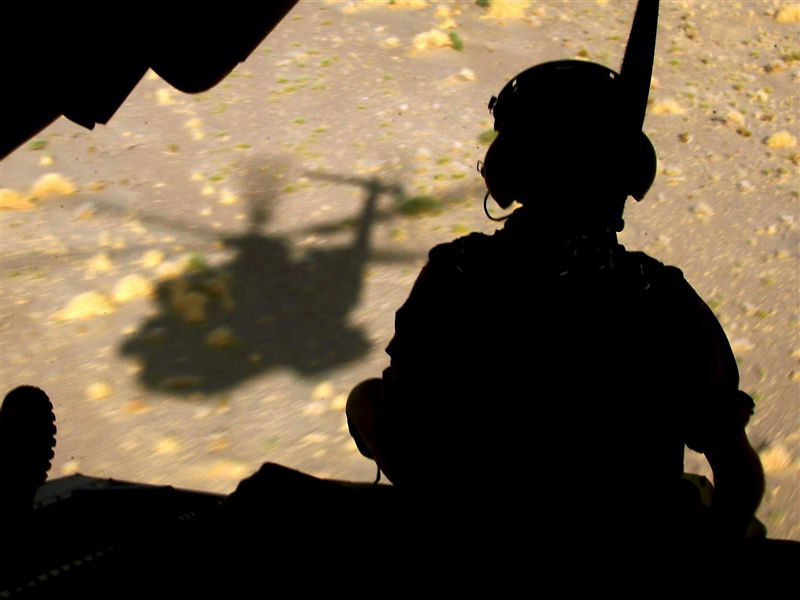
NATO-Kazakhstan Transit Agreement: Unleashing the Potential of Northern Supply Route
Publication: Eurasia Daily Monitor Volume: 7 Issue: 37
By:

NATO and Kazakhstan reached an agreement on January 27, allowing the Alliance to supply non-military goods through Kazakh territory to Afghanistan, substantially enhancing the capacity of the Northern Distribution Network (NDN) carrying supplies from Europe through Russia and Central Asia to Afghanistan. The deal came one day after a NATO-Russia Council meeting that resumed the bilateral military collaboration, previously strained in the aftermath of the Russia-Georgia war, by launching a new agreement on military transit and joint anti-terrorism efforts. The NATO-Kazakh accord was then followed by the London Conference on Afghanistan that emphasized a more effective aid and governance policy, reconciliation with elements of the Taliban, and strengthening regional cooperation (RIA Novosti, January 27).
The recent activities and agreements involving Afghanistan and the Alliance have conspicuously underscored the importance of reversing the critical situation in Afghanistan, as US and NATO troops are preparing to begin withdrawing from the war-torn country in 2011. However, that departure in a responsible fashion under the tight deadline requires enhanced cooperation with the regional states. Hence, NATO’s push for new transit agreements with Russia and Kazakhstan that can also significantly expand regional and continental transportation, communications and trade, bringing lasting benefits to the region.
The accord with Kazakhstan will complement NATO’s existing, but vulnerable supply lines, running through the Khyber Pass in Pakistan, thus strengthening the NDN in the process. Currently, around 80 percent of its cargo passes through Pakistan routes, which is regularly targeted by the Taliban (www.zeenews.com, January 27). Despite the deal, however, Pakistan will likely continue to serve as a major supply route in the near future (www.rzd-partner.com, January 28).
Nevertheless, the agreement “allows supplies for our forces to start moving from Europe to Afghanistan …complementing the very important transit route through Pakistan,” NATO’s Secretary-General Anders Fogh Rasmussen stressed (www.inform.kz, January 27). NATO states already use the territories of the former Soviet Union on the basis of bilateral agreements, although no arrangements existed whereby the alliance as a whole could transport goods through Kazakhstan (Turkish Weekly, January 28).
With the surge of 30,000 additional US troops, and plans for Germany and Romania to deploy up to 850 and 600 extra troops to Afghanistan respectively, the agreement is well placed to expand the volume of cargo and number of supply routes to support NATO troops. As Rasmussen stated, “Taken together, the announcement of new forces, and a new supply route, helps to further strengthen the International Security Assistance Force (ISAF)” (Reuters, January 27).
The US and NATO have long sought to conclude this and other similar agreements with Ukraine, Russia and Central Asian states to capitalize on the non-military transit deal signed with Russia in 2008. In April 2009, Ukraine allowed the US to transport cargo to Afghanistan via its territory. Shortly afterwards, the Uzbek-US agreement opened the way for the transit of non-lethal supplies (www.inform.kz, January 27). Overall, the US shipped almost 5,000 containers through the Central Asian railway network over the last 11 months, according to the US Deputy Assistant Secretary of Defense David Sedney, noting that the lack of railroad infrastructure in Afghanistan complicates NATO’s supply efforts (Reuters, December 15, 2009).
The NATO-Kazakh deal has therefore removed what was reportedly the last hurdle for the US and NATO’s progress on the NDN. Yet, the sequence and timing of events might suggest that some other circumstances were also at play that had prevented a more effective utilization of the routes. Only following the announcement of the US withdrawal and the resumption of NATO-Russian military cooperation was the NATO-Kazakh deal finally secured.
Moscow, faced with the challenge of terrorism, Islamic radicalism and instability on its southern borders, is interested in cooperating with NATO on Afghanistan, albeit that it opposes NATO’s long-term regional engagement. The Russian Chief of the General Staff Army-General Nikolai Makarov, for instance, stressed the importance of cooperation for Russia on January 26, when the new military transit agreement with NATO was signed (www.wavy.com, January 27). This is despite the new Russian military doctrine viewing NATO’s eastward expansion as a danger (RIA Novosti, February 11). However, Russia’s own reliance on NATO for regional security provides some scope for Kazakhstan to expand its relations with NATO, while enhancing stability in Afghanistan, without upsetting Moscow.
Kazakhstan, like Russia, seeks stability in Afghanistan, especially in light of the US commitment to extricate itself from the conflict, which may cost the regional states political, economic, and military benefits. It also seeks to incrementally expand its partnership with the US and NATO through the new deal to keep the ambitions of regional powers in check. In this context, the NATO-Kazakh agreement might be well placed to promote stability in Afghanistan, expand Kazakh-NATO cooperation, and provide lasting development benefits for the region even after the future US military departure from Afghanistan.




